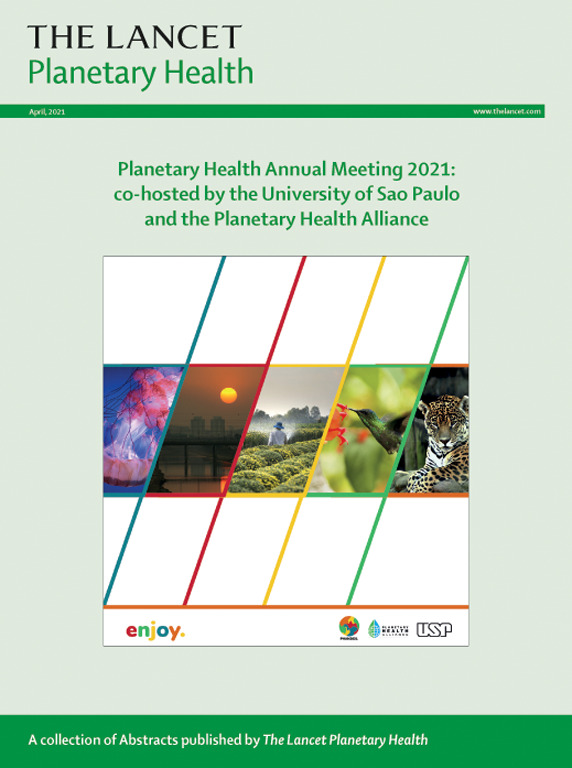Conceptual framework of women’s food environments and determinants of food acquisition and dietary intake in low- and middle-income countries: a scoping review
IF 21.6
1区 医学
Q1 ENVIRONMENTAL SCIENCES
引用次数: 0
Abstract
Women in low-income and middle-income countries (LMICs) are disproportionately affected by malnutrition in all its forms. Diets link human health and environmental sustainability; however, existing food environment frameworks rarely consider the unique needs of women that can differ due to sociocultural norms and lower social status, potentially reducing the effectiveness of nutrition initiatives. We conducted a systematic scoping review of peer-reviewed literature published in English, Spanish, Portuguese, and French to identify determinants of food acquisition and dietary intake of women in LMICs. By synthesising evidence from 518 studies across 125 countries, we identified 143 eco-social, structural, and individual-level determinants to develop an empirically grounded food environment conceptual framework for women. Women’s agency—encompassing decision making and financial autonomy, bargaining power, control over time, and freedom of movement—emerged as a prominent mediator of food acquisition practices and dietary intakes across diverse regions and the rural–urban continuum. Our findings highlight the importance of addressing legislative, structural, and sociocultural determinants mediating women’s agency, alongside other key external and individual-level food environment determinants influencing procurement and consumption of nutritious diets. This empirically grounded conceptual framework can guide research priorities and analytical approaches and identify intervention points for policies and programmes to optimise women’s nutrition.
低收入和中等收入国家妇女食物环境的概念框架以及食物获取和饮食摄入的决定因素:范围审查。
低收入和中等收入国家的妇女不成比例地受到各种形式营养不良的影响。饮食将人类健康与环境可持续性联系在一起;然而,现有的粮食环境框架很少考虑到妇女的独特需求,这些需求可能因社会文化规范和较低的社会地位而有所不同,这可能会降低营养倡议的有效性。我们对以英语、西班牙语、葡萄牙语和法语发表的同行评议文献进行了系统的范围审查,以确定中低收入国家妇女食物获取和饮食摄入的决定因素。通过综合来自125个国家的518项研究的证据,我们确定了143个生态社会、结构和个人层面的决定因素,以建立一个基于经验的女性食物环境概念框架。妇女的主体——包括决策和财务自主权、议价能力、时间控制和行动自由——成为不同地区和城乡连续体的食物获取实践和饮食摄入的重要中介。我们的研究结果强调了解决立法、结构和社会文化决定因素的重要性,这些决定因素调解了妇女的代理,以及影响营养饮食采购和消费的其他关键外部和个人层面的食品环境决定因素。这个以经验为基础的概念框架可以指导研究重点和分析方法,并确定优化妇女营养的政策和规划的干预点。
本文章由计算机程序翻译,如有差异,请以英文原文为准。
求助全文
约1分钟内获得全文
求助全文
来源期刊

Lancet Planetary Health
Multiple-
CiteScore
28.40
自引率
2.30%
发文量
272
审稿时长
8 weeks
期刊介绍:
The Lancet Planetary Health is a gold Open Access journal dedicated to investigating and addressing the multifaceted determinants of healthy human civilizations and their impact on natural systems. Positioned as a key player in sustainable development, the journal covers a broad, interdisciplinary scope, encompassing areas such as poverty, nutrition, gender equity, water and sanitation, energy, economic growth, industrialization, inequality, urbanization, human consumption and production, climate change, ocean health, land use, peace, and justice.
With a commitment to publishing high-quality research, comment, and correspondence, it aims to be the leading journal for sustainable development in the face of unprecedented dangers and threats.
 求助内容:
求助内容: 应助结果提醒方式:
应助结果提醒方式:


